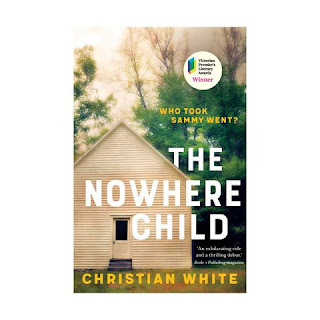Book review: Meeting Cain at the Cross Roads - Saramago vs Young
Cain by Jose Saramago had earned a 'staff recommendation' tag at Better Read than Dead in Newtown, Sydney, and so I took their lead and bought it on a lazy Sunday afternoon.
For a time I read them side by side, a literary juxtaposition:
Cain by a Nobel-prize winning, deceased Portuguese author also known for offending religious sensibilities and being a self-confessed communist, atheist and pessimist. Events in this his last book are seen through the eyes of the first child of Adam and Eve and occur at the beginning of time and space.
Both tell a message of God, but a different message. Both are allegorical to an extent, with varying degrees of success.
I've never been entirely certain why The Shack sold so many copies (success of which will no doubt spill over into Cross Roads) other than it tapped the massive, smouldering discontent with organised religion in the hearts of many believing people, especially those of North America. They want a God free of the shackles, free to meet their inner most needs.
I cannot fathom why Cain earned a staff recommendation at Better Read than Dead other than it tapped into the massive, electric discontent with organised religion in the hearts of many unbelieving people, especially those of the Western world who have grown tired of God and want him defrocked or gone altogether.
Both books speak marvelously to their respective audiences and will miss the other group, except by blazing mischance. Perhaps it is only the restless voyeurs who will stray from safe tribal loyalties to gaze into other worlds and take the time to wonder.
Cross Roads is about Anthony who is a caricature of an obnoxious American businessman who burns everyone in his life before revealing the tragedy of his own life.
Cain is about Cain who is Saramago's creation of man, his caricature of a Biblical character who goes wherever his atheist godwriter wants to him to go so as to deconstruct Biblical history with careless abandon.
Both books employ elements of fantasy or science fiction such as time travel or spontaneous relocation, alongside mysterious giving of keys or meetings with men and goats.
Young's novel has hints of the Christian classic Pilgrim's Progress, as different characters seek to help Anthony on his inner journey and others seek to oppose him with lies and bluff. At other times it is like CS Lewis's Screwtape Letters with the battle for the mind and heart and very often it is like The Shack itself, with triune God appearing in various forms to appease the God-weary and fill their hearts with the platitudes of love.
It is full of dialogue, a reasoning out of Anthony's past, his present and his future and most of all his terrible need and God's graciousness. There are some interesting plot developments and perhaps to an American audience, the characters seem full-bodied, but for me they were a little like the cast of a US TV series... take your pick which one.
Every now and then a line of dialogue or reflection of God really did get me thinking and I enjoyed the last third of the book a fair bit more than the beginning so if you don't give up, you may reap a harvest. And yes, there is a shack in this story again, and even God the Father appears in a form you are least likely to guess.
Given that Cain is a third the size and took me twice as long to read, you can guess I found it disappointing. It too used dialogue to reason out an understanding of God, but there was much less of it. It also retold many accounts from Genesis and these often included a very orthodox retelling followed by some rebellious response from Cain and others.
There may only be one way to find out. Click on the covers to purchase from Booktopia.
Cain by Jose Saramago, published (in Australia) July 5, 2012. Paperback 150 pages.
Cross Roads by William Paul Young, published (in Australia) November 13, 2012. Hardcover or Paperback 304 pages.



Comments
Post a Comment